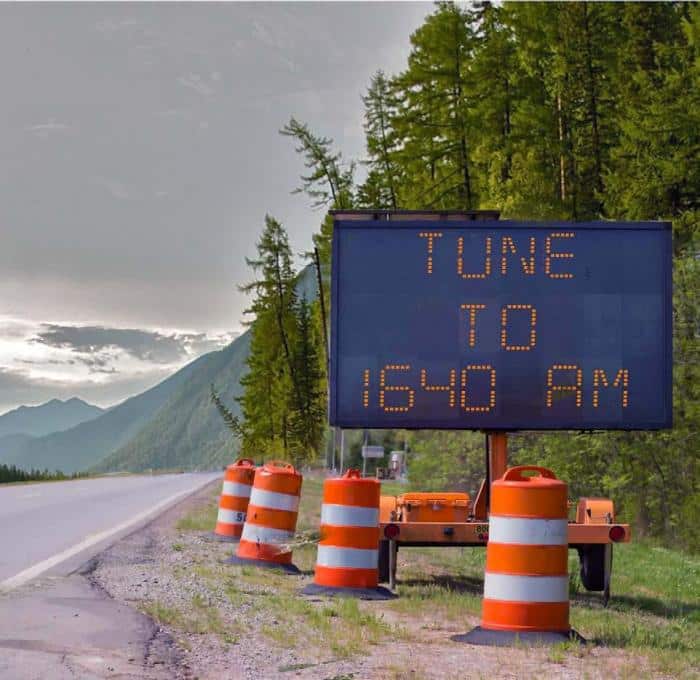Are HAR units still a viable safety option in today’s technology rich society?
With the ever-expanding rate of technology and our constantly increasing reliance on cell phones and computers, are highway advisory radio systems even effective anymore?
Only ten years ago, on your work commute or on a long road trip, when you saw a flashing sign that said “tune into 1640 AM for traffic information”, you simply changed the dial from Marty Robbins to 1640 AM.
The world has made a great bound in technology in a very short amount of time. Just a couple of years ago we listened to music on iPod Shuffles and paid $0.99 per song. Today we pay $4.99 a month for unlimited music on our iPhone X. Moreover, how many young drivers even listen to the radio anymore? Why would you when you have iTunes, Spotify, or Google Play?
A recent research survey conducted by Edison Research found that in 2008 only 6% of people didn’t have a radio in the home. Yet in 2016, 32% of Americans didn’t have a radio in the home. Pew Research also found that during the same period the number of people who got their news via radio fell by half to only 23%. This is indicative of the significant shift as America continues to become more internet reliant.
With the trend moving away from radio to relying on internet-based tools like smartphones, people are now using their phones while driving. Whether it is to get directions or check weather conditions, phone use is becoming all too common in vehicles, even while driving. Unfortunately, the temptation to shoot a quick text is too great. Numerous studies agree that texting causes more accidents than drunk driving.
While some states are investigating text message-based driver alert systems, these methods are creating hazards when they are attempting to warn drivers.
The State of Florida briefly moved away from advisory radio at one point, but after performing a study on the effectiveness of HAR systems, decided to re-implement them along the Florida Turnpike. The study showed that the benefits of these systems, especially in emergency situations, clearly outweigh the costs.
HAR systems have not been left behind as technology has improved. The Solarmax mobile HAR system is mounted on a weather-resistant trailer, runs on solar power, and can be updated remotely via the cellular network. The Solarmax also maintains a library of recorded messages.
Whether you are doing road construction in the mountains, or on a lonely desert road, HAR systems such as the SolarMax mobile system are the safest and most reliable way to communicate with people on the road.







